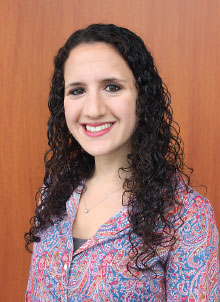Trainees Form New Reproductive Psychiatry Group to Learn, Network, Collaborate
Abstract
There are only 16 reproductive psychiatry fellowships in the United States and Canada. A new interest group offers trainees networking, lectures, and research postings to help bridge the gap.
A study of urine toxicology results from 95,000 pregnant women in California found that more than 8% screened positive for cannabis use in 2021, according to a research letter published by JAMA last September.
Use of cannabis while pregnant is associated with numerous adverse outcomes, including intrauterine growth restriction, preterm birth, and anemia, and is suspected of playing a role in executive functioning impairments, cognitive deficits, increased aggression, and depressive illness in offspring. However, this message is often not conveyed to patients, Lindsay G. Lebin, M.D., a senior instructor of psychiatry at the Women’s Behavioral Health and Wellness Services at the University of Colorado School of Medicine, told Psychiatric News. “We, as a community of physicians, are not talking to our patients much about cannabis use in pregnancy.”
Psychiatrists have an important role to play: Research has shown that women with psychiatric disorders are more likely to use cannabis during pregnancy. “When we’re not providing that information, patients assume cannabis doesn’t pose a risk to their pregnancy or they may look for other less reliable sources of information, such as the internet,” Lebin said. A study published in 2018 by the American Journal of Obstetrics and Gynecology found that the majority of Colorado dispensaries (69%) recommended cannabis products as a treatment for morning sickness to researchers who called them, posing as pregnant women.
Interest Group Bridges Learning Gaps
By request of group members, a seminar on cannabis use and pregnancy will be presented by Lebin on March 24 for the Reproductive Psychiatry Trainee Interest Group, which held its first meeting last December. The group is intended to help connect and provide educational opportunities for psychiatry residents and fellows, as well as medical students, who are interested in a career in women’s mental health. In its first few months, the group has already amassed nearly 400 members in 37 states.

Amanda Koire, M.D., Ph.D., wants to help spread the word about possible careers in reproductive psychiatry and bring this subspecialty front and center
The group was founded last November by psychiatry residents Reid Mergler, M.D., a PGY-3 at Tufts Medical Center, and Amanda Koire, M.D., Ph.D., a PGY-2 at Brigham and Women’s Hospital. The pair met after noticing each other attending the same sessions and breakout rooms at a perinatal mental health conference last October. “We lived in the same city, and we were both interested in similar topics, yet we didn’t know each other,” Mergler told Psychiatric News. “We thought it would be great to meet others who are interested in reproductive psychiatry, so we could develop research ideas, learn, and grow together, particularly because it is one of the newer subspecialities that is not recognized as much.”

Reid Mergler, M.D., co-founded the Reproductive Psychiatry Trainee Interest Group to help ensure residents receive a great education in reproductive psychiatry regardless of which medical school they attend.
Reproductive psychiatry is an up-and-coming field that is generating greater interest lately. The first fellowship in the field was created in 2002 at the University of Illinois, and there are now 15 such fellowships offered in the United States and one in Canada; half were created in the last five years, according to the Maternal Mental Health Leadership Alliance.
Koire said she is grateful that the medical school she attended had a women’s mental health elective for psychiatry. Still, a lot of the information about reproductive psychiatry educational opportunities is passed along through word of mouth. “If I had gone to a different medical school, I might never have known that this was my passion,” she said. “One goal of the group is to help bring this field front and center for everyone.”
The group polls new members on topics of interest for lectures and hosts monthly seminars given by experts in the field. Other upcoming seminar topics include epigenetic biomarkers of postpartum depression, premenstrual dysphoric disorder, and practical considerations in perinatal psychopharmacology for depression and anxiety. In addition, the group’s website pulls together other reproductive psychiatry educational resources, conferences, as well as new jobs and research projects.
“We wanted to give people an opportunity to get mentorship from other trainees, even if they are attending an institution that has not typically sent people for fellowships or had its own subspecialty faculty,” Mergler said. “In short, we wanted trainees to be able to get a great education in reproductive psychiatry no matter which school they attend.”
Call for More Women’s MH Education
In a paper published in Academic Psychiatry in 2018, the National Task Force on Women’s Reproductive Mental Health wrote that education of psychiatrists about reproductive mental health has lagged the field’s advances in research, public policy initiatives, and innovative models of clinical care. The task force wrote that its research showed that few residency programs were teaching much about reproductive psychiatry and that the major barriers to teaching more included lack of qualified faculty and lack of time devoted to the subject because reproductive psychiatry is not a required specialty. It identified several critically important topic areas to teach psychiatrists, including the influence of sex hormones on women’s health, premenstrual dysphoric disorder, antenatal stress and depression, postpartum depression, and the risks of treatment to both the mother and fetus.
“Although 80% of women will become pregnant in their lifetime, psychiatrists in training are not required to have any education about the management of psychiatric illness in the perinatal period,” according to the National Curriculum in Reproductive Psychiatry, a group formed in response to these concerns. The curriculum includes three recently developed self-study courses, Essentials of Reproductive Psychiatry, Bipolar Disorders, and Depressive Disorders, for which psychiatrists may now earn CME credit. It has also developed a fellowship-level curriculum on reproductive psychiatry.
Ultimately, Mergler and Koire said they hope that their group will help generate interest in and awareness of reproductive psychiatry among trainees. The group welcomes and allows all interested psychiatrists to attend its seminars; however, the content is aimed at residents. “We like the idea of having trainees and medical students feel like they are on an even playing field with others on the call, so they can ask questions without feeling embarrassed,” Mergler said.
The group is already working on its 2023 seminar schedule. “We’ve been deeply impressed and grateful for the response from faculty who want to be a part of educating this next generation of reproductive psychiatrists,” Koire said. ■
Psychiatry residents are invited to join the group here.
“Reproductive Psychiatry: The Gap Between Clinical Need and Education” is posted here.
“Rates of Prenatal Cannabis Use Among Pregnant Women Before and During the COVID-19 Pandemic” is posted here.
“Recommendations From Cannabis Dispensaries on First Trimester Marijuana Use” is posted here.



